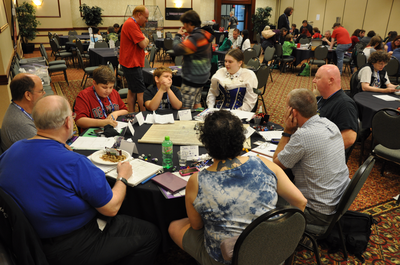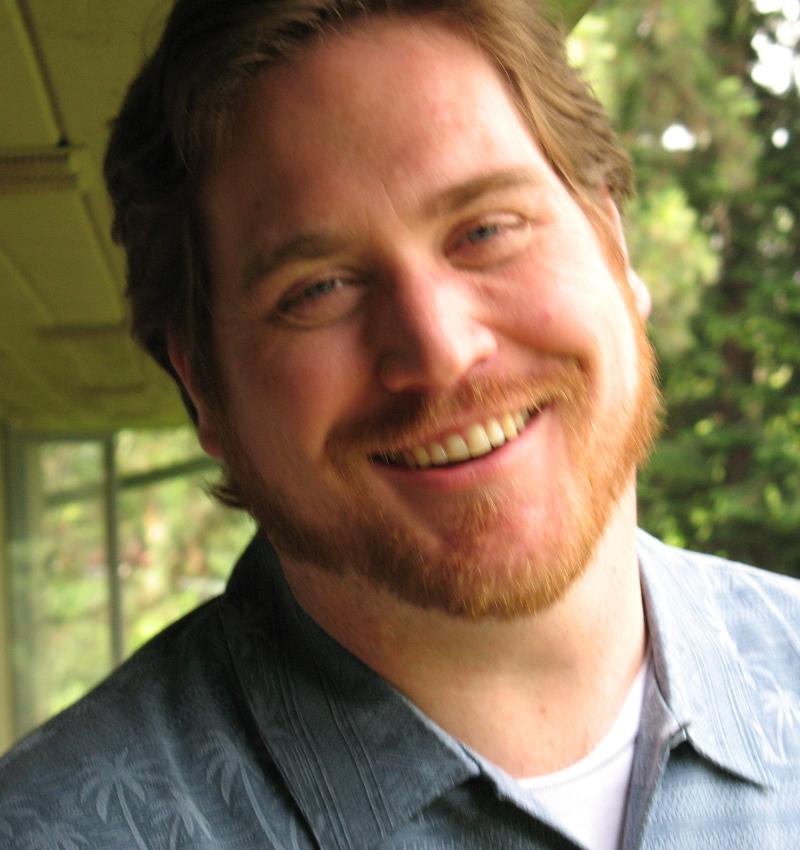Role-Playing Game RPG Research - Healthy Escape versus Unhealthy Escapism
Some people assume all forms of escape are unhealthy, but decades of research shows a much better understanding, there are adaptive and maladaptive forms of escapism.

Some people assume all forms of escape are unhealthy, but decades of research shows a much better understanding, there are adaptive and maladaptive forms of escapism.
Though the modality discussed changes over the decades (and centuries), the arguments about "Escapism" often recur, usually as a negative, though advocates do occur from time to time. I recently saw someone posting about it again. This topic is addressed in our presentations at Washington State and Pacific Northwest American Therapeutic Recreation Association Conferences, Seattle Children's Hospital, the RPG Therapeutics LLC Role-Playing Game Professional Workbook training program, and elsewhere in more depth, but here are some snippets on the topic.
There are a number of programs using computer games as interventions for many needs, including TBI recovery, though I was not able to find specific mentioning of computer-based RPGs specifically, it is not a difficult stretch to extrapolate the benefits. The closest I found was an online game created by Jane McGonigal (2010) that experienced post-TBI depression and created the game to help herself recover. I had heard some of the NPR interview about this, and was able to track that down (Flato, 2011).
Jane McGonigal is a game designer who advocates for everyone around the world to play video games one hour per day. She suffered a significant brain injury in 2009, and now travels the world as a public speaker, including on TED Talks.
A remarkable one still in development is the Brain-Computer Interface Role-Playing Game (BCI RPG), an online, multiplayer, turn-based RPG that you can play with just your thoughts.
In recent years a number of other computer-based endeavors have begun to evolve with some promising results.
As research has shown, there are both negative and positive uses of escape. An unhealthy form of escapism includes: self-suppression, running away from unpleasant thoughts, perceptions, and emotions. Jane McGonigal has turned these concepts into accessible phrases. For instance: “life sucks, so I’m going to go play games”. Regarding a healthy form of escapism - that includes: self-expansion, actively seeking new skills, stronger relationships, and positive experiences: “life is better when I have time to play games”.
You can view the entire Seattle Children's Hospital WSTRA presentation PDF here: wstra-2016-rpg-research-presentation-20160329zzf3.pdf
The videos from the variants of the presentation (shorter versions can be viewed here:
- Texas State University / Living Games Pre-Conference 2016 (14 minutes): TSU / LG Short & Fast Video
What about role-playing games makes them a useful tool in development and rehabilitation?
This varies much from population to population, and specific client needs. To answer this question effectively would be several pages/books in and of itself, and is the core of my research that I have been working on and sharing freely and openly since 2004, based on my early efforts I started in 1977, 1983, 1985, and 1989 for different effects, uses, and applications.
There are different Pros and Cons to each RPG Format.
It also varies between the 4 major RPG formats (tabletop (TRPG), live-action (LRPG and larp), electronic (ERPG) and hybrids (HRPG)), and there are caveats with each as well, mostly keeping balance and not getting too obsessive (like most things) with something that is so rewarding. I have provided some examples with the explanation about how the RPG Trailer will help others.
For tabletop RPG the physical in-person social interaction and cooperative problem solving of a shared narrative are very powerful and beneficial experiences for most individuals and groups. There are some unfortunate industry-wide unnecessary Barriers to Entry for New Players in the TRPG industry that need to be dramatically overhauled, but overall the TRPG format is the most accessible to the widest range of ages and population groups of the 4 major RPG Formats.
Additionally, depending on the game system mechanics, basic skills such as math, reading, writing, researching, can all be enhanced.
Tertiary benefits may be triggered by player interest in related topics such as history, metallurgy, science, geology, and other topics that come up during game play.
For computer-based electronic RPGs, a fair amount of research from others, including video game advocate Jane McGonigal, indicate that about 1-2 hours per day of any computer-based game is “good” for you, and computer-based RPGs with their added complexities and potential social interaction in ORPGs, MORPGs, and some MMORPGs (with significant caveats about many MMORPGs) provide additional benefits. There is research indicating that too much definitely can be “bad” for you in a number of ways (obesity, stress hormones, aggression, anxiety, etc.), and some video game designers unethically intentionally try to feed the areas of the brain that contribute to the “bad" side-effects to meet business revenue goals. This is why I am often brought in as an Ethical Game Design Consultant to help companies find the right balance between revenue generating "stickiness" and caring about the health and well-being of the participants. Some companies emulate the ruthless cigarette users model, while others have a much more positive intent. Regardless, it is very important that players are responsible and balance their time commitments.
For live-action role-playing gamines (LRPG), including larps, participants receive some of the social benefits of tabletop, plus the physical benefits of not just sitting at a table or in front of a screen.
In competitive larps, such as boffer and other combat styles, some populations may find the requirements for coordination and physical prowess more frustrating than fulfilling, due to accessibility issues with some RPGs. and may be happier with more drama-based RPGs. Since the LARP form of RPG is often more visible to the public's stigmatic responses to gamers, and often equipment costs can add up either in time to create, or the expense to buy, these can be barriers for comfortable adoption of this form of RPG. If players can overcome these issues, it is a very rewarding and beneficial form, and in addition to the many other benefits of RPG, can help address the “plump gamer” issues of the other two more sedentary formats by providing physical exercise of varying degrees.
These are all extremely over-simplified summaries. For more detailed information about the potential benefits of role-playing games for education, therapy, rehabilitation, etc. I think it would be easiest to provide links to many essays, videos, and research so that people can read more about each area in depth at their leisure:
- Overview History & Therapeutic Value of Role-Playing Gaming
- Potential Benefits & Deficits of Role-Playing Gaming
- Role-playing Games Used ad Educational & Therapeutic Tools for Youth & Adults
- American Sign Language Based Adapted RPG for The Deaf
- Why People Like RPG
- Essay on Using RPG to Help in Rehabilitation of TBI
- Video of Presentation on using RPG for TBI
- WorldCon 73 Poster Summarizing 10 years of Research in RPG for Therapy & Education
- Video of WSTRA CON 16 Presentation on RPG from Therapeutic Recreation Perspective
- Video of ZoeCon II Presentation on RPG use for Education & Therapy
Other References
https://w3.rpgresearch.com/blog/escapism-and-gaming
https://www2.rpgresearch.com/blog/escapism-and-gaming
- Eastern Washington University / Washington State Therapeutic Recreation Association 17th Annual Conference (90 minutes): WSTRA-17 Video (pending upload).
- Pacific Northwest American Therapeutic Recreation Association Conference (90 minutes, audio only): PNWATRA 2016 Audio (pending).
- Seattle Children's Hospital / WSTRA 16 (90 minutes): WSTRA 16 Video.
- https://w3.rpgresearch.com/research/archives/public/public-blogs-test/michael-tresca-interview-of-rpg-researchs-hawke-robinson-part-3-of-3
- https://w3.rpgresearch.com/research/archives/internal/rpg-research/rpg-handbook-wiki-original-source-document

Hawke Robinson
Known across multiple industries as "The Grandfather of Therapeutic Gaming" because he has been studying the effects and uses of role-playing games and their potential to achieve therapeutic goals longer than anyone else, Hawke Robinson is a Washington State Department of Health Registered Recreational Therapist.
He has a diverse and deep background in Therapeutic Recreation / Recreation Therapy, computer science, neuroscience, cognitive neuropsychology, neurotech, research psychology, nursing, play therapy, education, music, and role-playing gaming.
- Hawke Robinson has been involved with role-playing games in community settings since 1977.
- Studying methods for optimizing the experience of role-playing games, software development, and online since 1979.
- A paid professional game master since 1982.
- Studying the effects of role-playing games upon participants since 1983.
- Providing role-playing games in educational settings and for educational goals since 1985.
- Working with incarcerated populations since 1989.
- Researching and using role-playing games to achieve therapeutic goals for a wide range of populations from 2 years old through senior adults since 2004.
- Founder and Executive Director of the non-profit 501(c)3 charitable research and human services organization, RPG Research.
- Founder and CEO of the for-profit RPG Therapeutics LLC and RPG.LLC.
- Author of multiple books in technology and gaming W.A. Hawkes-Robinson books available on Amazon.
- Creator of the wheelchair accessible RPG Mobile fleet vehicles and trailers.
- Founder of the experiential learning Role-Playing Game RPG Museum, and much more.
- Creator of the Brain-Computer Interface Role-Playing Game (BCI RPG) and many other related projects.
No comments yet. Start a new discussion.